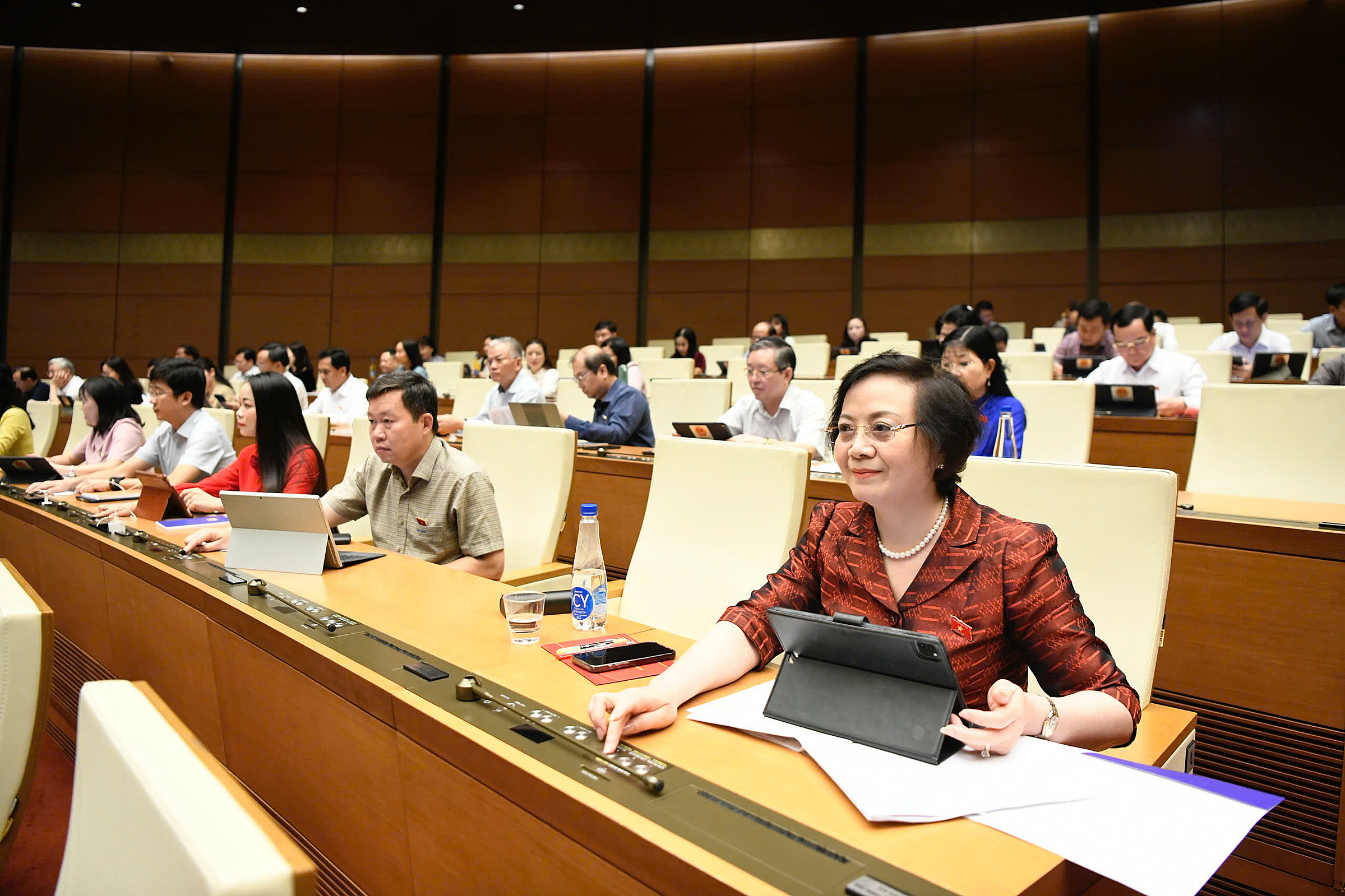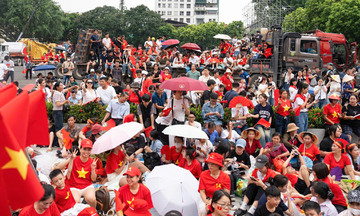On 24/6, the National Assembly passed the amended Law on Officials and Public Employees with 418 out of 423 delegates voting in favor. This law allows agencies to contract individuals with high qualifications and capabilities to perform public duties when facing staffing shortages. Government agencies are also permitted to contract services for specific tasks, with funding secured from the state budget beyond existing salary and administrative funds.
The government will define specific criteria and conditions for these contracts, based on the actual situation and needs of each agency. This initiative aims to flexibly supplement the workforce with highly qualified individuals without creating a new category of public employees while ensuring effective public service.
 |
National Assembly delegates vote on draft laws on the morning of 24/6. Photo: Giang Huy |
National Assembly delegates vote on draft laws on the morning of 24/6. Photo: Giang Huy
The government acknowledged suggestions to move away from lifelong public servant recruitment toward a contract-based system for greater flexibility. However, concerns were also raised about the potential impact on the stability of the public employee workforce if contracts become widespread.
The draft law addresses this by limiting contracts to specific tasks, thus avoiding the creation of a "contractual public employee" category. The Ministry of Finance has been tasked with establishing a separate financial mechanism that won't affect current salary or administrative funds.
Attracting talent to the public sector
The new law also introduces mechanisms to attract high-quality human resources and talented individuals to public service. The state will implement special policies to recruit specialists, scientists, outstanding entrepreneurs, and exceptional students to work in Party, State, Vietnam Fatherland Front, and socio-political organizations.
Talented individuals are defined as officials and public employees with exceptional expertise, innovative thinking, outstanding achievements in public service, and tangible contributions to the common good. They will receive special incentives. The government will establish a framework for attracting, utilizing, and incentivizing these individuals, with funding guaranteed from the state budget.
The government outlined three specific methods for attracting talent from outside the public sector: direct recruitment as public employees; contracts for leadership and management roles; and contracts for specialized tasks.
Eliminating the distinction between commune and provincial-level public employees
Another key change is the removal of the distinction between commune and provincial-level public employees, unifying the public service system from central to local levels. Commune-level public employees who meet the educational requirements will transition to the new system without needing to consider their length of service or ranking.
Additionally, the law introduces a shift towards position-based management of public employees, using performance and deliverables as the basis for evaluation, appointment, utilization, and training. This will serve as the foundation for effective recruitment and utilization of officials and public employees, aiming for a modern, transparent, and efficient public service.
Vu Tuan












